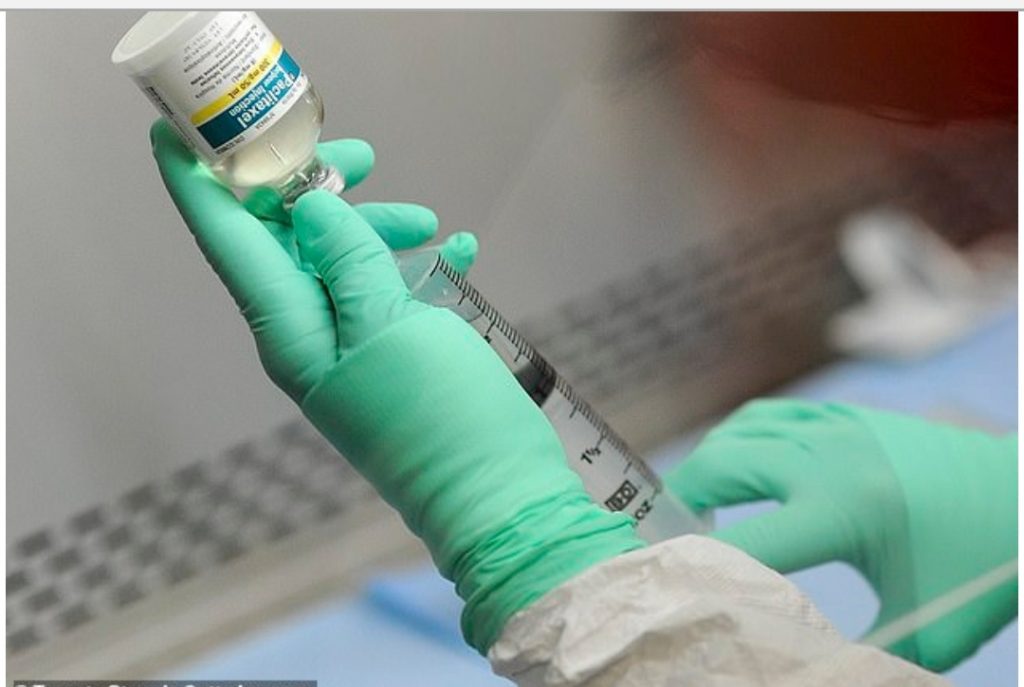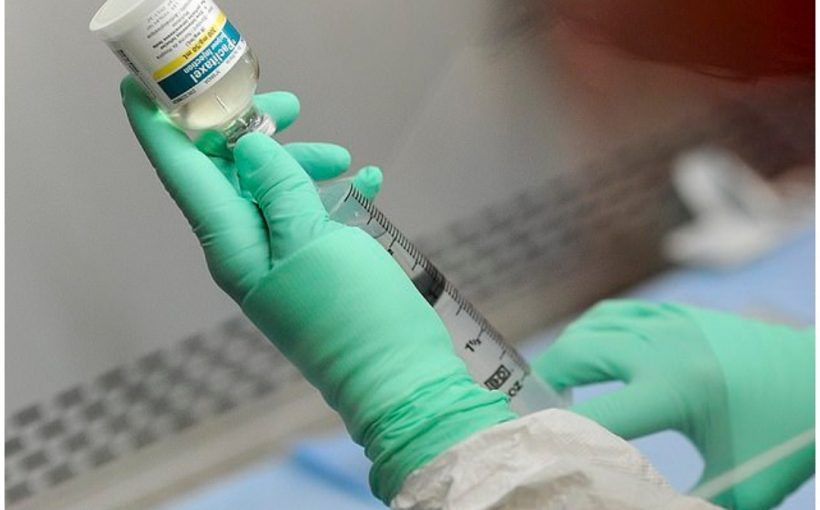
Breast cancer develops from a cancerous cell which develops in the lining of a duct or lobule in one of the breasts. When the breast cancer has spread into surrounding breast tissue it is called an ‘invasive’ breast cancer. Some people are diagnosed with ‘carcinoma in situ’, where no cancer cells have grown beyond the duct or lobule.
Chemotherapy is often given to breast-cancer patients before surgery to shrink their tumours and make them easier to remove. Known as ‘neoadjuvant therapy’, this also helps to save healthy breast tissue. In some cases, chemotherapy can even eradicate the tumour entirely, with such patients being highly likely to remain cancer-free for life.
Breast cancer affects one in eight women at some point in their lives in both the UK and US, statistics show. It is unclear how many cases of the disease spread, with the lungs, bones, liver and brain being the most commonly affected secondary areas.
CCL2 then attracts immune cells called monocytes, which fight certain infections and help other cells remove dead or damaged tissue. However, monocytes can also be dangerous, with previous studies showing they fuel the survival and growth of cancerous cells in the lungs. In short, our study has identified a new link between chemotherapy and breast cancer metastasis,’ Professor De Palma said.
‘While this observation supports the significance of our findings, at the moment we don’t know if annexin-A6 has any pro-metastatic activity in human breast cancer,’ Professor De Palma added. The authors also stress their findings should not discourage people from receiving neoadjuvant chemo when it is needed.


